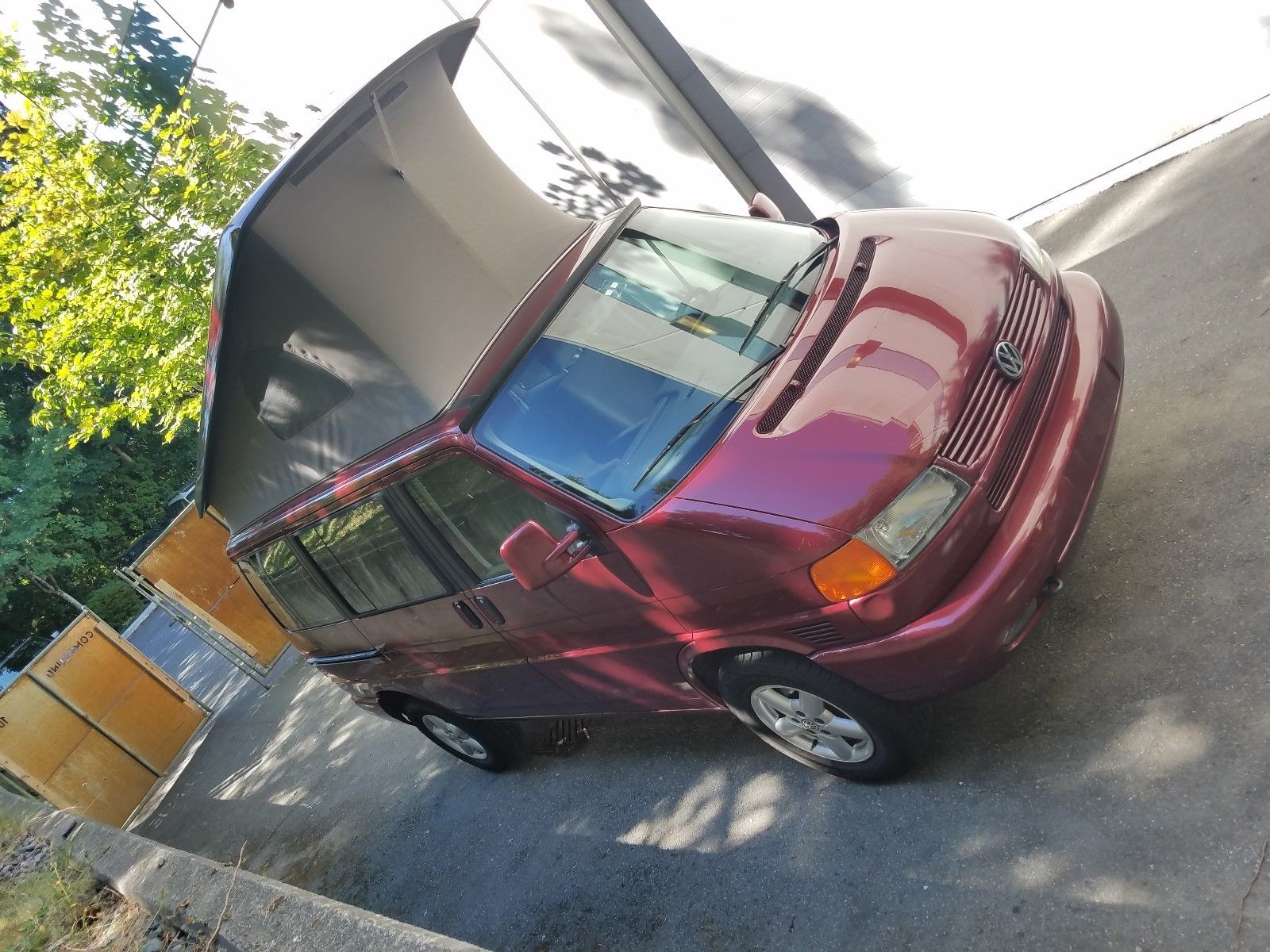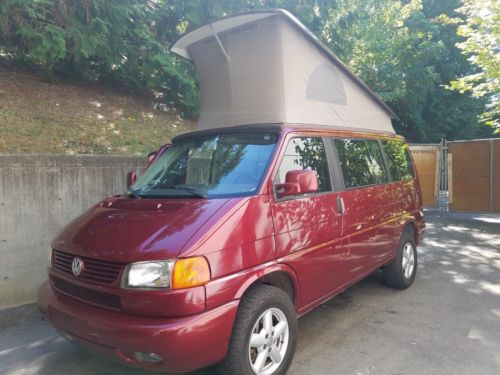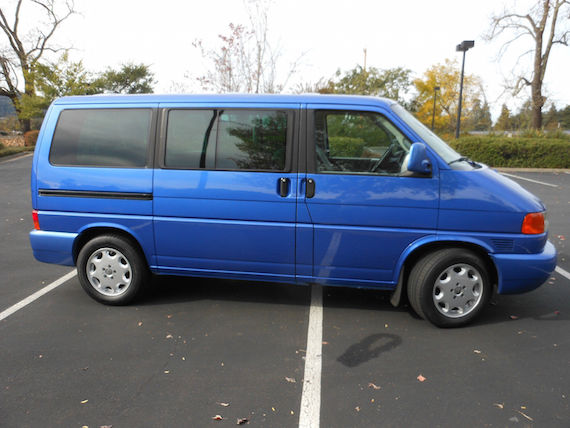I’ve always been intrigued, and a little confused, by the Volkswagen Van. I first learned to drive on a neighbor’s T2, and I grew up in a period where vans were as cool as it got. Vans were ambulances. Vans were campers. And vans even carried the A-Team. Sure, the GMC Vandura wasn’t a Countach, but to kids in the 1980s it had nearly as much impact, fool!
But it’s not the appeal of these vans that I find confusing at all. The first thing I find hard to follow are the various trim levels. Especially when it came to the T3 and T4 models, things get a bit complicated. You could buy, for example, a Wolfsburg Edition Vanagon in the 1980s and early 90s. This was not to be confused with the Westfalia model, which was notable for having the pop-top. However, there was also a Weekender model, which sometimes had a pop-top but didn’t have the camping accoutrements of the Westfalia. That these were further available in two- and four-wheel drive made things even more confusing, and then – of course – there was a Wolfsburg Weekender for a short period. I don’t even know what came in that model. Well, I do, actually, but the point remains that it was confusing.
The switch to the T4 was pretty revolutionary. Gone was the antiquated rear-engine layout, and cylinder count went up to five as Audi’s 2.3 liter motor was massaged into 2.5 liters with a short stroke for lots of torque in the new Eurovan. These came to the U.S. starting in 1993, and there were two configurations – the Eurovan and the Multi-Van (MV for short). The difference was the seating configuration, in that the MV had rear-facing seats behind the captain’s chairs and a table in the middle. Easy, right? Well, then there was the Westfalia model. Volkswagen hadn’t forgotten how successful the T3 was with the pop-top, so a new aerodynamic folding roof arrangement was added to the MV. But here was the catch – the new Westfalia didn’t have the camping gear, but instead was effectively the same as the previous Weekender. It was called the Weekender, too. The full campers were only converted by Winnebago and based on a lengthened chassis. These started being produced in 1995 and replaced the Westfalia in the lineup but were not called Westfalias. Winnebago produced an extra-fat and extra-expensive camper, too – the Rialta – which was half VW and half short bus. The Westfalia, and the pop-top Weekender, disappeared for a few years.
The next big change in the lineup was one more cylinder for the 1997 model year, as the narrow-angle 2.8 liter twelve-valve VR6 replaced the inline-5. Power was up a bit (but only just at 138 horsepower) and was accompanied by a light restyle outside. Further changes came with the reintroduction of the MV Weekender in 1999 following the all-but-disappearance of the slow selling and ridiculously priced Winnebago, and finally, more power in 2001 with the 24-valve VR6. Despite upping power with dual cams, adjustable intake and double the valve count to net over 200 ponies (46% more power than the prior VR6!) Volkswagen also substantially cut the price – nearly 20% – of the T4, meaning the late models are probably the ones you’re going to find since they sold in greater numbers. Out the door, a GLS model sold for about $26,500 – nearly exactly the same sticker price as my Passat, but with much more space and utility. Move up to the MV, and you needed to pay about $3,000 more – but you got the folding bed, curtains, removable seats and flip up table. Another $3,500 paid for the pop-top Westfalia model, which now included screens, dual batteries and a refrigerator in addition to the signature pup-tent roofline.
Now that I’ve hopefully helped you (and more likely me) to sort the lineup a bit, let’s take a look at the second thing which confuses me in the VW Vans – the pricing. Here’s one of the more desirable models in the T4 lineup – a 24V VR6 MV Westfalia Weekender, and this one is no reserve:



